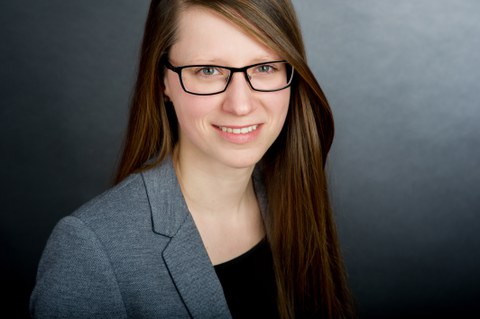A6
Mechanisms of self-control: The role of anticipated emotions and future thinking in reward regulation
The aim of project A6 is to elucidate mechanisms underlying volitional self-control, i.e., the ability to resist temptation and inhibit impulsive responses in favor of long-term goals. Our central hypothesis is that to resist temptation it does not suffice to activate a cognitive representation of long-term outcomes of a behavior. Anticipated future outcomes are more effective in supporting self-control when they evoke an affective response at the time of the decision and thereby modulate neural valuation signals that finally determine behavior. In the first funding period a series of fMRI studies yielded evidence that emotional responses are indeed activated during the anticipation of bivalent outcomes, that such anticipatory emotions can be regulated voluntarily, and that affect-focused future thinking supports this voluntary regulation. The anticipatory network comprised the anterior insula (aINS), ventral striatum (VS) and ventromedial prefrontal cortex (vmPFC) and was activated alongside with prefrontal control regions during the down-regulation of craving. Moreover, self-controlled decisions in a choice conflict task were associated with activation in brain areas involved in emotional responses to anticipated future rewards and costs. Our second main hypothesis holds that self-control rests on the modulation of a common neural valuation signal in the vmPFC by affectively charged anticipations of future outcomes (presumably mediated by the dlPFC). Consistent with this hypothesis, we found that in subjects showing high self- control in a value-based decision-making task, self-controlled choices were associated with stronger activity in the dlPFC and a stronger impact of future outcomes on value signals in the vmPFC, as compared to subjects showing low self-control. Based on these findings, in the second funding period we will pursue three aims. (1) We aim to investigate in more detail the temporal dynamics of self-control in order to dissect value modulation and attentional filtering as two sub-mechanisms mediating self- controlled choice. (2) We aim to directly test the hypothesis that the dlPFC plays a causal role in top- down the modulation of neural value signals and attentional filtering during self-control. (3) Finally, we aim to expand our investigation of the role of anticipatory emotions in self-control by examining interoceptive predictions of future bodily states as a core component of anticipatory emotions. Within the CRC, project A6 aims to deepen insights into the fine-grained mechanisms underlying self-control, which will serve as the basis for future studies in which we plan to investigate the predictive value of individual differences in anticipatory emotions and value modulation for real-life self-control.
Projekt Members
Principal Investigators
Prof. Dr. phil. Thomas Goschke
CRC 940 Spokesperson; Professor for General Psychology (W3)
Phone: +49 (0)351 463-34695
E-Mail:
Professor Dr. Dr. Henrik Walter / Berlin Stellvertretender Ärztlicher Direktor (Forschung) Klinik für Psychiatrie und Psychotherapie, Campus Charité Mitte Leiter, Forschungsbereich Mind and Brain
Phone: +49 (30) 450 517 141 E-Mail: henrik.walter@charite.de
Dr. rer. nat. Franziska M. Korb
Postdoctoral Researcher/Lecturer
Phone: +49 (0)351 463-35113
E-Mail:
Staff
Dr. rer. medic. habil. Johann Kruschwitz
Postdoctoral Researcher
E-Mail:
M. Sc. Johanna Kruse
Doctoral researcher
Phone: +49 (0)351 - 463 33598
E-Mail:
Publications
- Walter, H., Kausch, A., Dorfschmidt, L., Waller, L., Chinichian, N., Veer, I., Hilbert, K., Lueken, U., Paulus, M.P., Goschke, T., Kruschwitz, J.D. (2020). Self-control and interoception: linking the neural substrates of craving regulation and the prediction of aversive interoceptive states induced by inspiratory breathing restriction. NeuroImage, 215, 116841. https://doi.org/10.1016/j.neuroimage.2020.116841
- Kruschwitz, J.D., Kausch, A., Brovkin, A., Keshmirian, A., Paulus, M. P., Goschke, T., & Walter, H. (2019). Self-control is linked to interoceptive inference: Craving regulation and the prediction of aversive interoceptive states induced with inspiratory breathing load. Cognition, 193, 104028.https://doi.org/10.1016/j.cognition.2019.104028Get rights and content
- Kruschwitz, J.D., Waller, L., List, D., Wisniewski, D., Ludwig, V. U., Korb, F., ...& Walter, H. (2018). Anticipating the good and the bad: A study on the neural correlates of bivalent emotion anticipation and their malleability via attentional deployment. NeuroImage, 183, 553–564. https://doi.org/10.1016/j.neuroimage.2018.08.048
- Kruschwitz, J.D., Ludwig, V.U., Waller, L., List, D., Wisniewski, D., Wolfensteller, ...& Walter, H. (2018). Regulating Craving by Anticipating Positive and Negative Outcomes: A Multivariate Pattern Analysis and Network Connectivity Approach. Frontiers in behavioral neuroscience, https://doi.org/10.3389/fnbeh.2018.00297
- Paschke, L.M, Dörfel, D., Steimke, R., Trempler, I., Magrabi, A., Ludwig, V.U., Schubert, T., Stelzel, C., & Walter, C. (2016). Individual differences in self-reported self-control predict successful emotion regulation. Social Cognitive and Affective Neuroscience,11(8),1193-204. doi:10.1093/scan/nsw036
- Scherbaum, S., Dshemuchadse, M., Leiberg, S., & Goschke, T. (2013). Harder than expected: Increased conflict in clearly disadvantageous delayed choices in a computer game. PLoS ONE 8(11), e79310. doi:10.1371/journal.pone.0079310

